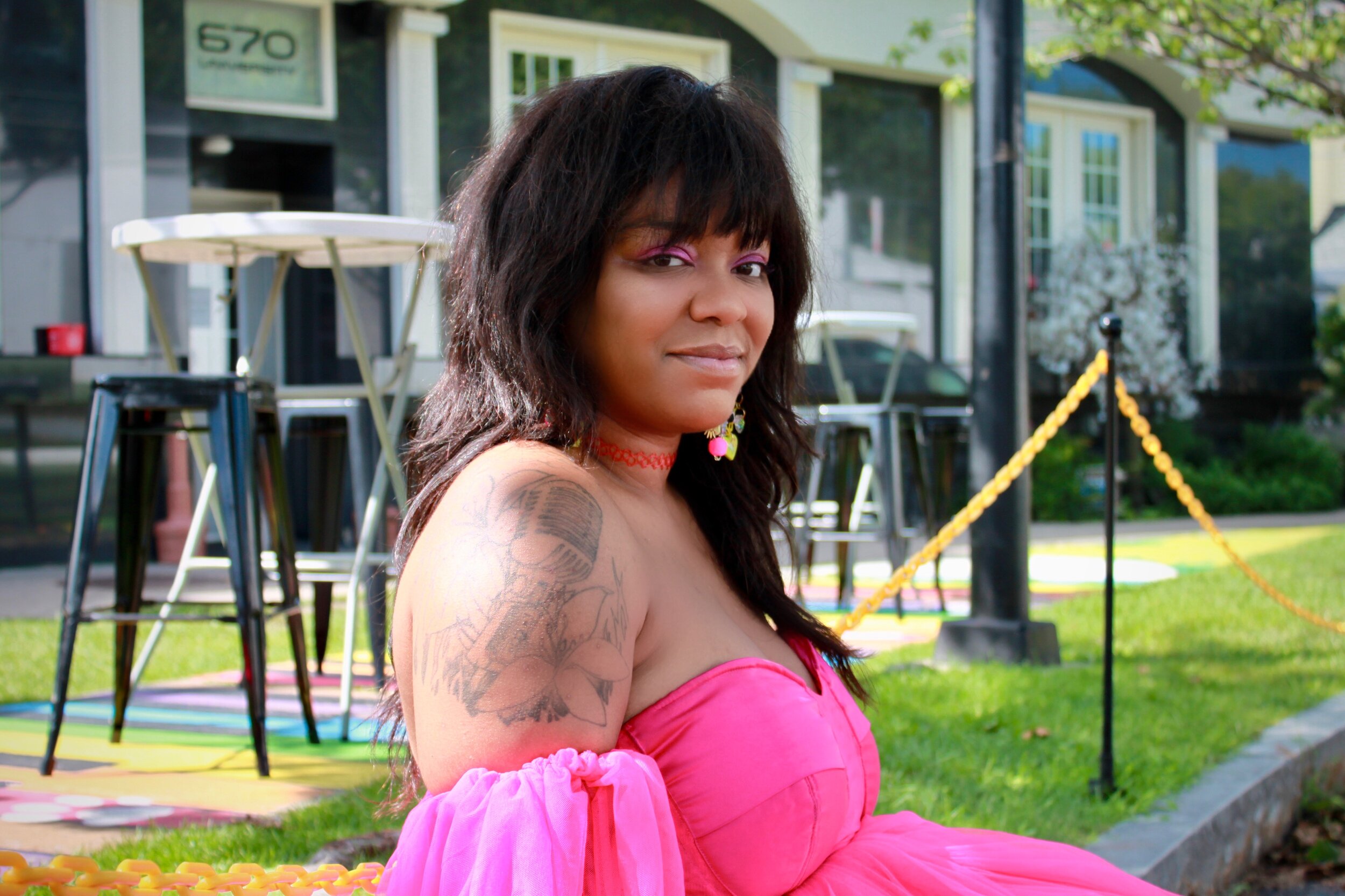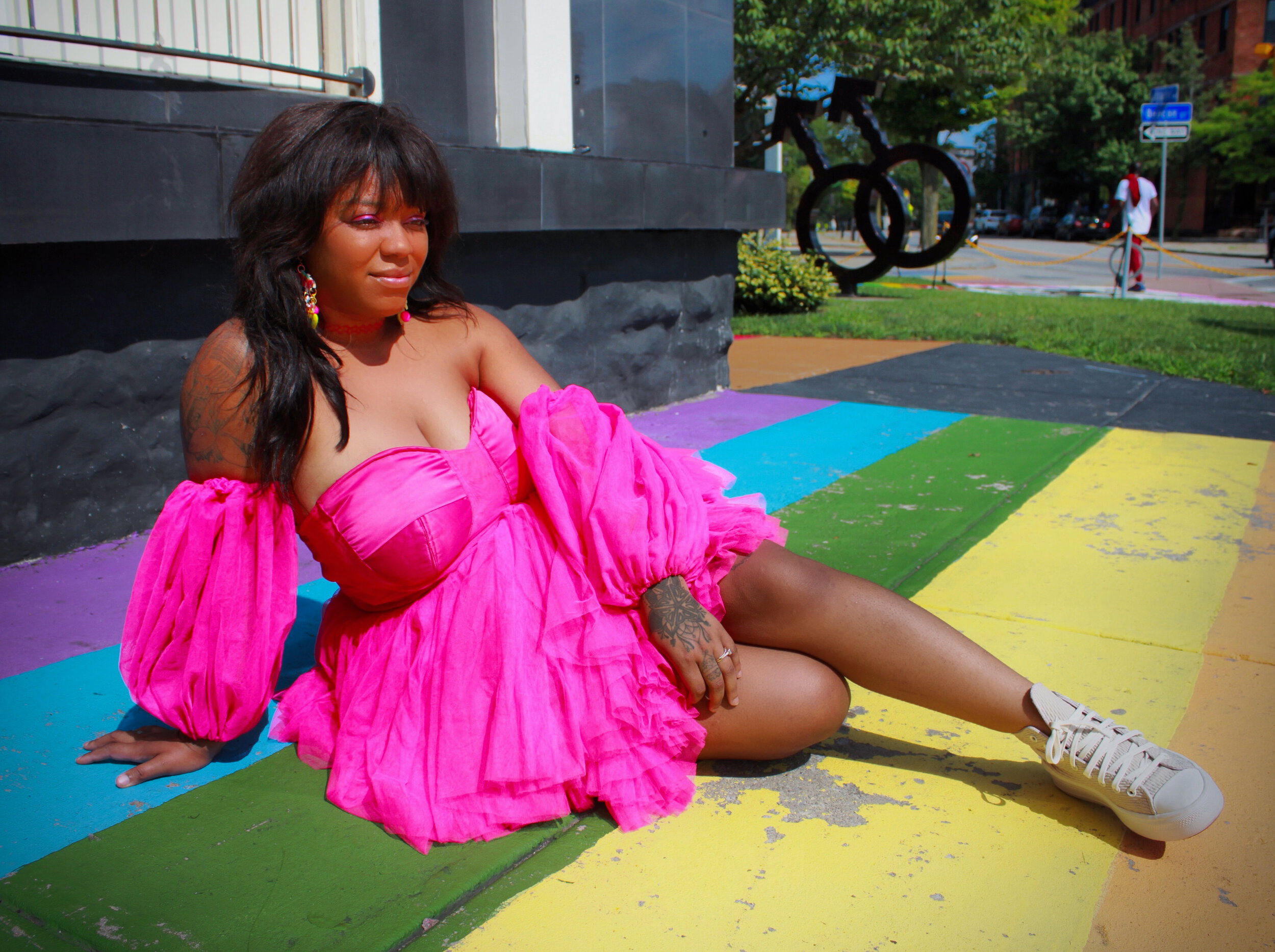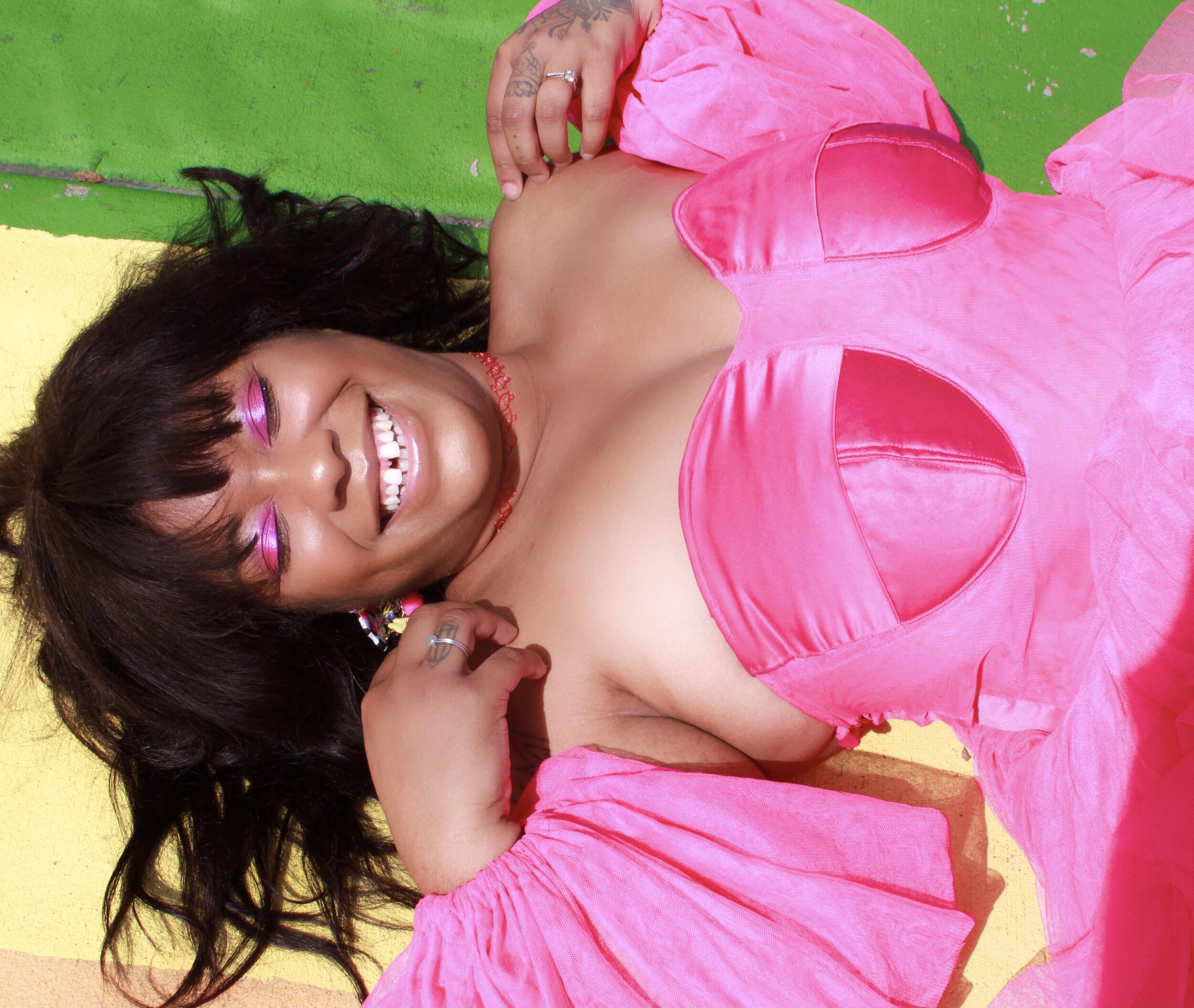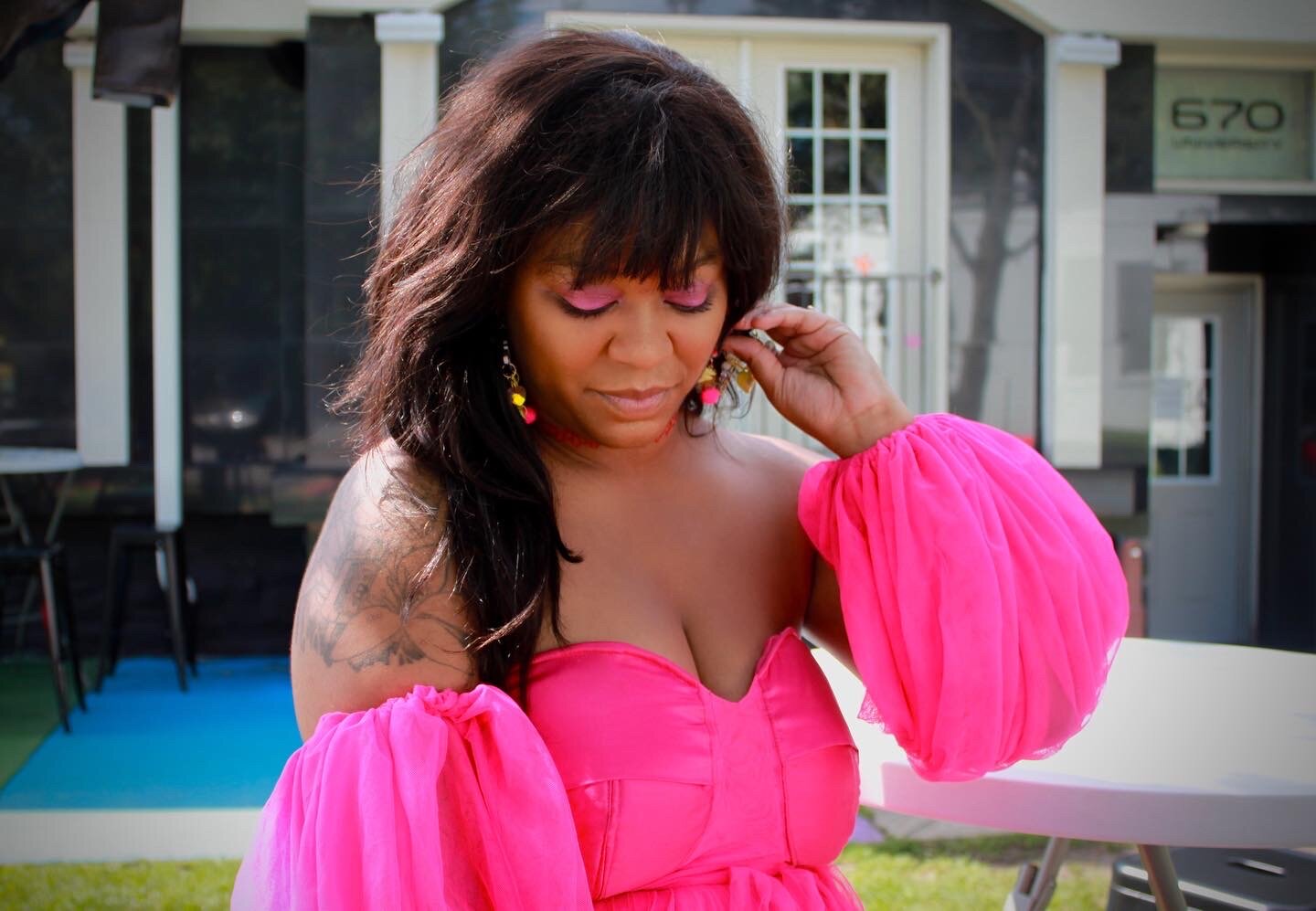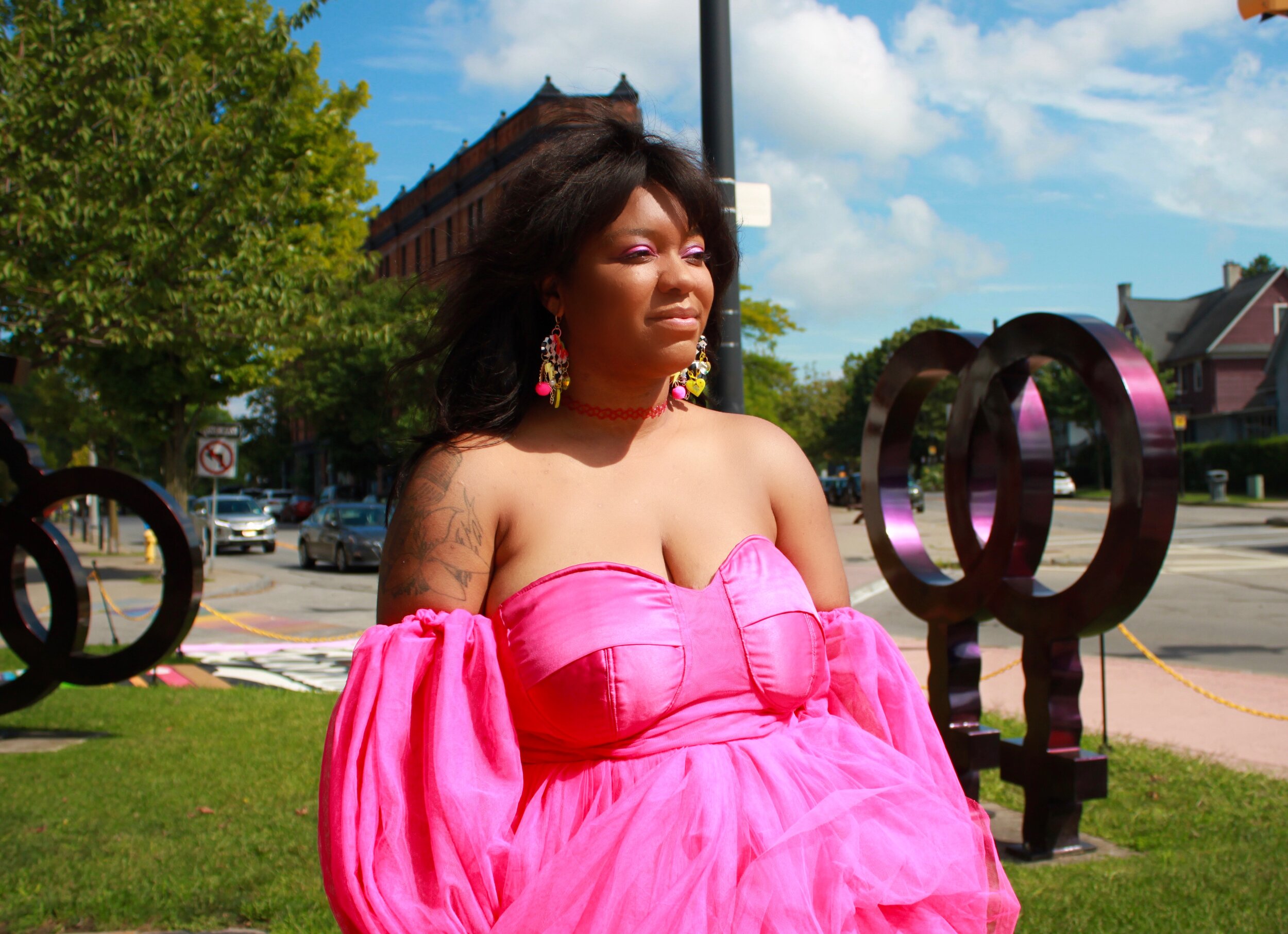Champagne Brown
“I honestly never imagined a life separate from alcohol, but not only am I living that life - I am living it more abundantly. The best part about being sober is being able to experience and give true love. It’s being able to be the best version of myself every single day. I literally mean this when I say - it’s like being reborn.”
NAMI: Have you ever had any mental health struggles?
CB: I suffer from an anxiety/panic disorder, and I am also an alcoholic, which I feel sometimes gets overlooked or not talked about as much as it should be when it comes to mental health struggles. I was diagnosed with my anxiety/panic disorder about two years ago, but to be honest, I should have been diagnosed as a child. My earliest memories are full of me being a very anxious and terrified kid. I remember having a panic attack in first grade watching my classmates carve pumpkins. For some reason or another, that sight scared the living daylights out of me. I also remember many times where I would break down during thunderstorms. Honestly, you name it, I was unable to handle it as a child. But during that time in my life I had no words to describe what I was feeling or what was happening to me, I just knew I was scared all the time and felt different. But starting therapy and processing a lot of childhood trauma helped me figure that out late into my adult life.
NAMI: You are open on social media about the fact that you are sober. Was there a specific moment at which you realized you needed/wanted to become sober? How did you enter the world of sobriety?
CB: I think there were many times the universe exposed my drinking problem to me, but I never paid attention to the signs really. Like, I saw them, but then ignored them. I knew I needed to stop drinking when I started noticing I was drinking without my own permission. Quarantine and the lockdown last year really was the turning point in my life. I was starting to notice I was drinking a lot, often, needing more alcohol than I was “used to,” and waking up looking for the booze from the night before and shocking myself when I noticed it was all gone. The date of my last drink was 4/30/20, and that day was the day I really knew I had to quit. I blacked out during the day, my husband was furious as per usual, and he ended up leaving the house and calling my parents (big BIG TRIGGER for me). I ended that night furious as all hell - in bed crying literally all night, not because my husband had walked out, not because my parents were mad at me, but because I knew my relationship with alcohol had to be over and done with. I cared more about alcohol than I did anything or anyone in my life. So, if I wanted to finally grab a hold of my life and make something of myself, I had to get sober.
NAMI: What does recovery mean, and look like, for you? What is/was the hardest part of the process? What’s the best thing about being sober?
CB: Recovery, for me, looks like going to bed every night thanking my Higher Power for another sober day, and waking up the next morning asking my Higher Power to show me how I can help someone else, and to please help me stay sober for the day. It looks like living in the authenticity of my best self. It looks like accepting I can’t change the past, and being grateful for the new day that’s filled with second chances. The hardest part of the process of getting sober is ADMITTING you need to get sober. We run around for years chasing false happiness at the bottom of bottles or in crowded bars - basically making alcohol the center of our universe. So admitting the ONE thing you love the most is the ONE thing you have to let go of, because it’s a very real problem for you and is killing you, is HARD. But - it gets better. I honestly never imagined a life separate from alcohol, but not only am I living that life - I am living it more abundantly. The best part about being sober is being able to experience and give true love. It’s being able to be the best version of myself every single day. I literally mean this when I say - it’s like being reborn. I am able to appreciate things and people more. There’s so so much that’s awesome about being sober, but honestly the best part is being able to help others who are struggling, which is why I am so open about my recovery.
NAMI: What advice would you give someone who is contemplating getting sober or who is struggling to remain sober (relapsing)?
CB: My advice would be to get real honest with yourself. Reach out for help. Listen to those who have some time under their belts and take their advice. Remember that we have a sober living problem, and that alcohol and drugs only help us momentarily with that problem we have. We have to fix the “us” problem to fix the addiction. Try a meeting. Try two or three if you need to. There are 24/7 platforms that can help you around the clock - that’s how I got clean. But most importantly, remember to take this thing one day at a time. If a day seems too egregious, take it an hour at a time. A minute at a time. Stay in the moment and stay connected. And if you’re reading this, reach out to me if you need to. My DMs are always, always open.
NAMI: As someone living with a dual diagnosis, do you feel like support is readily available, accessible, and affordable? Further, do you feel like it’s streamlined — or have you had to find support/treatment in separate places for substance use disorder?
CB: I do feel like there are services readily available, but my issue was finding the right one for me. Going to the doctor was the first step in helping me with my anxiety and panic disorder. The medication process was a fight, however. I went through several meds before finding the right combination for me. As far as my alcoholism, four words: THANK GOD FOR ZOOM. I got sober during the lockdown, and meetings were not being held in person. I ended up finding a 24/7 zoom room where folks from all over the world held meetings on the hour every hour. From those rooms, I met some of the most amazing women, two of which have become my sisters; my best friends. In the past, I checked myself into outpatient twice, but never felt like I got much out of it - because I wasn’t ready, but that is definitely an option for those who need it. It can be costly to afford that kind of treatment, however. In my opinion, the best help I ever received was from another alcoholic who wanted nothing from me but to see me stay sober.
NAMI: How do you protect your mental health and sobriety?
CB: I protect my mental health and peace by simply allowing what is for me into my life, and respectfully dismissing what is no longer for me or what no longer serves me. I keep my friends super close and take their advice - well, try to at least haha. They ALWAYS tell me I need to rest cause I am always on the go. Honestly, helping others helps me get out of my own funk, and that helps me protect my sobriety the most. As far as self care - art. Music. Singing. Spending quality time with myself. Naps! Lots of naps when I need them! And as far as balance, I feel like I am still and will forever be working on that. However, my husband is literally the calm to my storm, so if I ever need someone to help bring me down or help me stay on track, I always turn to him for help.
NAMI: What forms of mental health-related stigma have you observed or run into personally? How do you combat stigma?
CB: A lot of folks think that mental health issues are not real. Growing up, it was never talked about as an actual issue. In the black community and in other communities of color, it’s basically taboo talk. I was always told I needed “more Jesus” and that I would be okay. I have found that the only way to combat the stigma for me personally is to talk about it, and talk about it LOUD. The more we, as a collective, keep bringing those conversations to the forefront, the more we will eventually start seeing the negative outlook on it start to dissipate. At least that is my hope.
NAMI: What is Rochester doing right as a community in terms of mental health resources and sobriety supports? How could we improve?
CB: I think our community is doing a fabulous job keeping these conversations around mental health and addiction issues relevant. I believe the more people come forward with their stories, the more we can really band together to make sure these conversations keep happening. I think holding events, speaker-led meetings, meetups, things like that out in the community will help those suffering in silence to feel less alone. If you are feeling alone, please know that you are not. You are loved. You are wanted. You are needed! I hope this helped someone.

